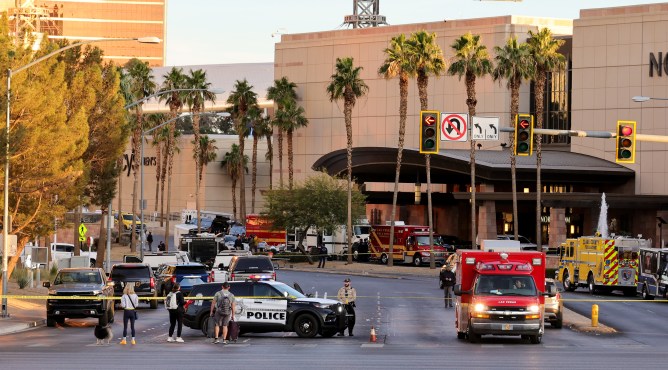Turo’s Dark Side: Two Military Veterans Use Peer-to-Peer Car-Sharing Platform to Commit Acts of Violence
A Tragic Tale of Misuse
This week, two individuals rented cars from Turo, a peer-to-peer car-sharing platform, and used them to commit acts of violence. The first incident occurred in New Orleans, where a military veteran driving a Ford F-150 Lightning drove into a crowd of people, killing at least 15. In Las Vegas, an active-duty Green Beret rented a Tesla Cybertruck, parked it in front of the Trump International Hotel, and allegedly blew it up. Unfortunately, the driver died by suicide.
Turo’s Response
On Friday, Turo’s chief executive, Andre Haddad, released a statement expressing his outrage over the misuse of their platform. He noted that Turo is working "around the clock" to determine how the platform was exploited in such a manner. However, this raises questions about the effectiveness of Turo’s safety measures.
The Problem with Background Checks
Turo has been described as like Airbnb for cars, allowing vehicle owners to rent out their vehicles for extra money or even as a full-time business. Many hosts on the platform rent out three or more vehicles at a time. Turo claims to screen each renter using a "proprietary multi-layer, data-science-based trust and safety algorithm" called the Turo Risk Score. However, it’s unclear what this means in practice.
A History of Controversy
Over the years, some bad actors have managed to slip through the cracks on Turo, embroiling the company in controversy after cars on its platform have been used for human and drug trafficking. Additionally, people who claim to be hosts regularly post about their cars being rented out to individuals with criminal histories on the Turo subreddit page.
But Were These Perpetrators Unlikely?
Even if Turo’s background checks were foolproof, the two perpetrators of the crimes this week had valid driver’s licenses, clean criminal backgrounds, and were decorated U.S. military servicemembers, according to Haddad. They could have rented cars or trucks from any traditional vehicle rental chain without being flagged by law enforcement.
Turo’s Response: Investing in Improvement
In response to these incidents, Turo is investing in improving its risk score algorithm and has assembled a team of former law enforcement professionals to help assess future risk. Haddad noted that the company is consulting with national security and counterterrorism experts to learn more about how it can improve its safety measures.
A Look at Turo’s Statistics
Turo claims to have facilitated 27 million trips over 12 years, with fewer than 0.10% ending in a serious incident like vehicle theft. While this may seem reassuring, it raises questions about the company’s ability to prevent misuse of their platform.
What’s Next for Turo?
As Turo continues to navigate this crisis, it will be interesting to see how they implement changes to their safety measures and risk assessment algorithm. With the help of national security experts, they aim to create a safer environment for both hosts and renters on the platform.
The Bigger Picture: The Future of Peer-to-Peer Car-Sharing
This incident highlights the need for more robust safety measures in peer-to-peer car-sharing platforms like Turo. As these services continue to grow in popularity, it’s essential that companies prioritize the security and well-being of their users.
About Rebecca Bellan
Rebecca Bellan is a senior reporter at TechCrunch, covering transportation and related topics such as micromobility, EVs, AVs, smart cities, AI, sustainability, and more. Her work has appeared in various publications, including Forbes, Bloomberg, and The New York Times.
Subscribe to Our Newsletter
Stay up-to-date on the latest news and developments in the transportation industry by subscribing to our newsletter. From new funding rounds to innovative technologies, we’ll keep you informed about the trends shaping the future of transportation.

